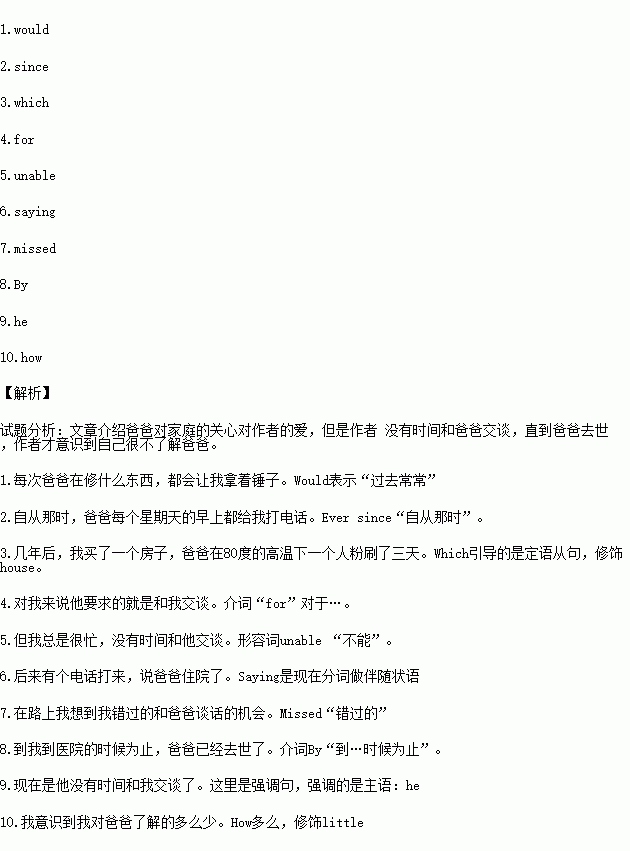题目内容
阅读下面材料,在空白处填入适当的内容(不多于3个单词)或括号内单词的正确形式。
When I was a little girl, every time my dad was repairing something, he 1.ask me to hold the hammer, and meanwhile, have a conversation with me. I never saw my dad drinking or taking a night out. All he did after work was taking care of his family.
I grew up and left home for college and 2. then, my dad had been calling me every Sunday morning, no matter what. Several years later I bought a house, 3. my dad painted by himself for three days in the 80-degree summer heat. All he asked was 4. me to talk to him. But I was always busy, 5. (able) to find any time for conversation with him.
One Sunday morning we had a telephone talk as usual. I noticed that my dad had forgotten some things we discussed lately. I was in a hurry, so our conversation was short. Later that day came a call 6. (say) my father was in hospital. Immediately I bought a ticket for a flight and on my way I was thinking about all the 7. (miss) occasions to have a talk with my dad.
8. the time I got to hospital, my father had passed away. Now it was 9. who did not have time for a conversation with me. I realized 10. little I know about my dad, his deepest thoughts and dreams. After his death I learned more about him, and even more about myself.

